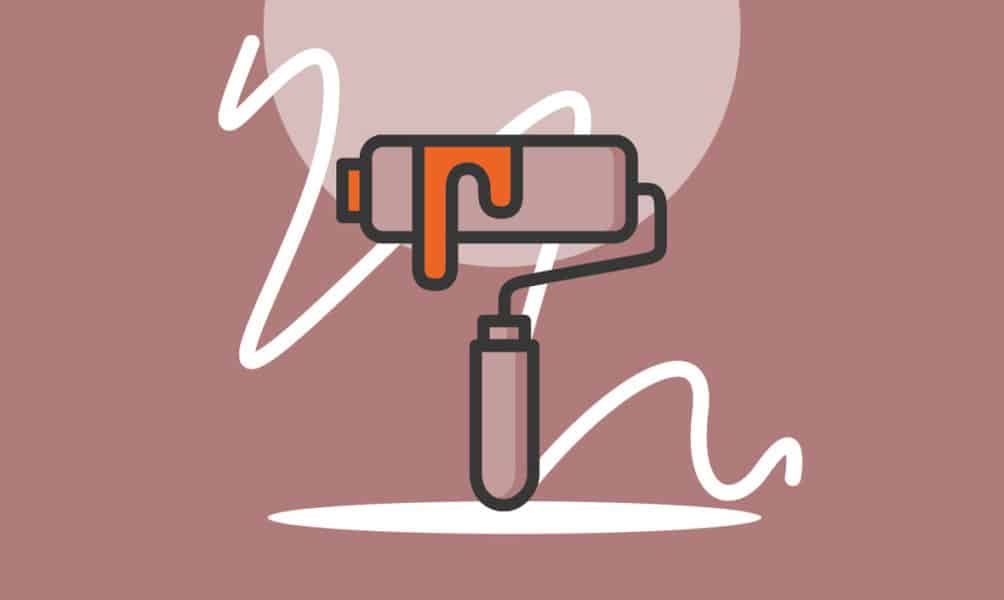Are you capable of transforming an unremarkable object into a thing of beauty? If so, you might find serious success as a crafter. Makinghandicrafts ...
38 Creative Small Business Ideas to Inspire You
Written by: Carolyn Young
Carolyn Young is a business writer who focuses on entrepreneurial concepts and the business formation. She has over 25 years of experience in business roles, and has authored several entrepreneurship textbooks.
Edited by: David Lepeska
David has been writing and learning about business, finance and globalization for a quarter-century, starting with a small New York consulting firm in the 1990s.
Published on June 30, 2022

Want to express your creativity and be your own boss? There are many creative business ideas out there that can help you check both boxes, and make good money! Most importantly, many creative industries are doing particularly well right now, including crafting, candle making and different concepts of design.
If you’re not sure what you’d like to do, you could review our list of creative business ideas below. Maybe one will strike a chord and spark your creativity and entrepreneurial spirit!
1. Candle Making

With low initial costs and a simple learning curve, candle-making offers great potential for profit. To start, master the craft by experimenting with different waxes, scents, and styles. Define your brand and target audience to make your products stand out. Estimate your startup costs, focusing on raw materials and branding. Finally, leverage online platforms like Etsy to create a store and develop a marketing strategy that highlights your unique candles.
2. Landscaping

Landscaping business offers the opportunity to work outdoors and provides a lot of freedom in choosing clients and services. With a stable market demand, this business has relatively low entry barriers. Initial costs can range from $7,000 to $25,000, covering essential equipment and a reliable vehicle. Essential steps include choosing your services based on local demand and your expertise, obtaining necessary licenses and permits, and setting up a business entity to manage liabilities and taxes. Effective marketing and acquiring the right equipment are crucial to getting your first clients and growing your business.
3. Painting

Starting a painting business is a flexible and accessible venture, ideal for those with basic painting skills and limited capital. The initial investment is generally low, focusing primarily on purchasing essential tools like brushes and ladders. Key steps include registering your business and obtaining necessary licenses and insurance to operate legally and safely. Marketing your services effectively will also be important to attract clients and grow your business.
4. Photography

To start a photography business, you need to choose a specific niche, such as wedding or stock photography, which helps in targeting the right audience. Crafting a solid business plan and choosing an appropriate business structure are foundational steps. You’ll need basic equipment like cameras, editing software, and possibly studio lights. Building a compelling online portfolio and employing robust marketing strategies are crucial for attracting clients. Additionally, ensuring you have proper insurance and possibly consulting with an accountant will support your business’s long-term sustainability.
5. Fashion Brand

The first step in launching a fashion brand is to identify a unique style or niche in the market. Begin by researching fashion trends and determining what unique offer your brand will bring. Create a business plan that includes your vision, target market, and financial projections. You’ll also need to source materials, design your products, and decide whether to produce them locally or overseas. Building a strong brand identity, including a memorable logo and an online presence, is essential for attracting and retaining customers. Marketing strategies should focus on social media to reach a broad audience and engage directly with potential customers.
6. Phone Case

Phone cases are relatively low cost to produce. Key steps include identifying a market need, designing unique cases, and deciding on a manufacturing method – either in bulk for cost efficiency or using print-on-demand services for flexibility. Marketing is crucial, utilizing platforms like Shopify to create an online store and employing social media for outreach. You can sell them on Etsy, Ebay and Amazon. Ensure your designs appeal to specific customer needs, whether for fashion, protection, or functionality.
7. Arts & Crafts

Do you have a creative hobby? If it involves some sort of craft, you might want to consider turning your favorite at-home pastime into a business, and potentially a major revenue stream. You’ll be able to embrace and express your creativity, producing goods that could be sold around the world. But you will need to decide which products to focus on. This could be anything from crocheted blankets and clay jewelry to embroidered handkerchiefs and knit hats. Whatever you choose, be sure to research what’s already out there and offer a unique twist on existing products. Arts and crafts are popular on Etsy, so set up a handmade Etsy shop. For a website, use Shopify, Wix or WordPress.
8. Home Decor Store

If you have a creative mind, starting a home decor business can be the perfect career choice for you. You’ll need to make a significant investment if you decide to put up a brick and mortar shop. An option is to run your business from home and sell your merchandise through online marketplaces to reduce your startup and overhead costs. You’ll still need to register your business and comply with other legal requirements. It’s important to keep up with the latest trends and be innovative in promoting your products to make them stand out in a crowded marketplace.
9. Sticker Business

You might view stickers as something for kids, but did you know that many top brands use stickers in their marketing? Stickers are a great way for a company to get their branding out there at little cost Starting your own sticker business will require a lot of work, from generating appealing designs to sourcing materials and building your online presence, whether that’s a website or a shop on an online platform like Etsy. You’ll also need to choose if you want to specialize in customized stickers, stickers with quotes and motivational messages, colorful designs, cartoon characters, holiday specific stickers, or something else.
10. Magazine

Before starting a print magazine, it’s important to research the market and decide on a niche from the outset. It’s also a good idea to build a team of writers, editors, photographers, graphic artists, and other staff early on. It’s to your advantage to create a solid business plan and a creative marketing strategy. Although the industry is expected to grow further in the coming years, it’s wise to seriously consider the risks posed by free digital magazines and blogs. Keep in mind that providing high quality, credible, relevant, and engaging content can win the game.
11. Digital Marketing Agency

Marketing is expected to see steady growth in the years ahead, so if you’re able to generate strong slogans and creative campaign ideas, you might want to start your own marketing business and grab a share of this massive market. First off, it doesn’t require much investment — you’ll mainly need a laptop, website, and some good software. Next, you’ll need to determine your niche. Will you focus on digital marketing, TV advertising, social media campaigns, or something else? You could also decide to focus only on a certain type of businesses, such as video game companies, sneakers, cosmetics, or outdoor apparel, and build a reputation within that industry.
12. Jewelry

Are you fascinated by gems and jewels? You could start your jewelry business from home and provide stunning, high-quality goods to discerning clients around the world while making a good living. Best of all, you’ll also be able to express your creativity, with innovative and appealing designs for bracelets, rings, necklaces and more. Of course, you’ll need to develop your jewelry making skills, and thankfully there’s a wealth of online instruction that can help with that. You will also need to find a reliable wholesale supplier of gems and valuable metals, and acquire the proper equipment. Finally, once you start producing brilliant jewelry, you’ll need to hit on a strong marketing campaign in order to stand out in an increasingly competitive marketplace.
13. Floral Business

Do you love the smell of fresh-cut flowers? Or the way a brilliant floral arrangement can brighten your day? If so, starting a flower business could be the perfect way to turn your hobby into a career. One key step will be deciding if you want to open your own flower shop, or focus on selling flowers online. The latter route is less expensive, as you’ll have less inventory and no rent or utility payments, and could be a good way to build up a reputation while minimizing risk. Once you’ve established a brand and started getting referrals, you could open your flower shop and start beautifying the whole neighborhood, one arrangement at a time.
14. Art Gallery

Are you passionate about art? If so, now might be the right time to follow your dreams and open an art gallery. Getting started isn’t as easy as drawing a stick figure, but nor is it as difficult as painting the Sistine Chapel. First, you’ll need to decide which type of art you’ll focus on. It should be a genre that’s personally meaningful to you. Maybe you’re into 20th-century Russian art, or contemporary South American artists. Or maybe you’d prefer to highlight up-and-coming artists from your area. Alternatively, you could embrace several of these options, but it tends to be better for a gallery to build a brand focused on a certain concept or genre. Once you’ve nailed down your concept, you’ll just need to rent out a good space, start reaching out to artists and collectors and, last but not least, launch a major marketing blitz to promote your first show.
15. Pottery

Pottery is an industry that goes back thousands of years, but remains relevant to this day. If you’re a creative person with a love for pottery, you might want to turn your passion into a business and start making profit. To go into a pottery business, you’ll need a pottery wheel, kiln, clay, glazes, molds, and other tools and supplies. Find reliable suppliers, observe the competition and compare prices, and promote your products either through digital marketing or word-of-mouth marketing. You also need to set up a workshop as well as a store where you can sell your finished products. They could be in the same location; just get creative with whatever space you can get.
16. Interior Design

Interior design business doesn’t require much investment and you can run it from home, when you’re not off visiting clients, that is. Of course, it won’t be as easy as snapping your fingers. It helps to have a degree if you want to become an interior designer, but it’s not absolutely required. What is needed is a strong sense of style and a feel for feng shui. Beyond that, you’ll need some good design software and a professional-looking website. You’ll also need a savvy marketing campaign — maybe focused on Pinterest and Instagram? — to stand out in an increasingly competitive market.
17. 3D Printing

A strong demand for three-dimensional customized products is driving the rapid growth of the global 3D printing market due to increased demand for prototypes, models and artistic designs in various industries like aerospace, automotive, health care and more. You will need to understand first the regulations and legal issues affecting the industry. For example, the use of 3D printers is not regulated but the medical products that are produced through 3D printing are regulated by the FDA. A license is also needed for 3D printers that are used to make weapons. If a design used to create a 3D model is covered by intellectual property rights, printing the model would infringe those rights.
18. Sunglasses Business

You don’t need any prior experience or knowledge to start your own sunglasses business and get in on this hip and happening trend and make good money. But you will need to do some real legwork. First and foremost, you’ll want to design two or three appealing pairs of sunglasses to serve as your primary products at launch. It’s a good idea to research existing sunglasses businesses, and check out the latest fashion magazines, to see which styles are selling best these days. Big is back, for one thing. Next you’ll need to decide if you want to open a sunglasses shop, operate a sunglasses stand, a la Sunglass Hut, or sell your products online. Keep in mind that online sunglasses sales are growing much more quickly than the market as a whole.
19. Videography

If you have video production and editing skills, you might consider setting up a videography business. With the increasing use of videos in the digital marketing landscape, there will probably be no dearth of opportunities for you. First, it’s important to develop your brand and come up with an attractive business name and logo. Next, you must invest in the right cutting edge equipment and keep yourself updated with the latest technologies. To promote your brand, you can set up social media accounts, make video samples and develop a website. Finally, tap into your creativity to propel your business to the top.
20. Embroidery

Embroidery is largely used to print logos and text on caps, shirts, socks and more. In order to start providing professional embroidery services, you will need to invest in an embroidery machine. This will allow you to embroider a wide range of fabrics, from cotton and denim to velvet and leather. Most of these machines are pre-loaded with designs, but it’s also possible to create your own designs or use the designs submitted by your customers. With a lot of creativity and a good marketing plan, your embroidery business should be able to get off the ground in no time.
21. Hair Salon

If you’re meticulous about grooming, starting a hair salon might be the perfect career choice for you. It’s a sure-fire way of earning a steady income once you figure out how to stay ahead of the competition. In order to capture a share of this highly competitive market, you’ll need to invest a significant amount in the latest tools and equipment, find a good location, and research what other hair salons are offering. It’s important to be innovative and creative in marketing your products and services. It’s also a good idea to keep track of the latest trends, such as the use of augmented reality that lets customers see how they’d look with certain colors and styles.
22. Graphic Design

Strong graphic design is a crucial element of nearly every business’s branding and marketing strategy, which is why it’s always in great demand. You could start your own graphic design business from home and work with clients around the world. You will, however, need to have a strong creative streak and some skill and experience with graphic design software and tools. If you don’t have a related degree, you could brush up on your graphic design skills by taking courses at an online platform like Udemy. Next, it’s a good idea to research the market, see what sort of graphic design is trending lately, and keep an eye out for a market gap that might fit your skillset.
23. Cake Making

Cake making business can be run from home so you can minimize your overhead cost. Once you’ve registered your business, you should find a reliable supplier of ingredients and supplies. Besides offering unique birthday cake designs, you might also want to introduce gluten-free and sugar-free cakes to cater to all kinds of customers. Keep yourself updated with the latest market trends and consider coming up with cakes in a box or tin can cakes. A cake business will require a lot of creativity, hard work and an effective marketing plan.
24. Gift Basket

One can never go wrong with a gift basket of wine, fruits, food, or flowers, whether it’s given to family, friends, or colleagues. It’s an excellent choice if you don’t know what the recipient likes or if you’re sending to multiple recipients. Before you get started, it’s to your advantage if you choose a niche and craft your marketing strategy. Having a strong online presence is crucial to your success, so it’s a good idea to start developing your website and social media accounts as soon as you decide on your branding strategy.
25. Dance Studio

If you have some remarkable dance skills and studio space, you can start your own dance studio and earn some cash while teaching others the basics of ballroom dancing, jazz, hip-hop, or Kpop dance breaks. Before you can open your dance studio, it’s a good idea to scope out the market and come up with offerings that will make your studio stand out. Keep in mind that you’ll be competing not only with other physical dance studios in your locality but also with online dance classes. Being up to date with the latest trends in dance can give you a competitive edge. It’s also important to map out a business plan that will employ both traditional and digital marketing strategies to bring in the clients.
26. Music Production

If you’re passionate about making music, why not consider starting your own music business? Listening to music helps improve the mood, promote relaxation, boost creativity, and more. Starting a music business can be a fun and rewarding experience, but it’s important to determine what kind of music you will focus on. Artists can make money by selling their music, using social media, or creating branded content for clients. But first, you will need to build up an audience. Be creative and think of ways to attract a large following in social media and get them to view your videos.
27. Gift Wrapping

There’s nothing like the excitement created by a present wrapped in colorful paper and ribbons. If you’re looking for a profitable venture that will make your customers feel good, starting a gift wrapping business is a viable option. To get started, you have to decide whether to just provide gift wrapping services at home or set up a shop. You will need to unleash your creativity to be able to offer unique gift wrapping ideas. Keep up with the latest trends and techniques to stay relevant and differentiate yourself in the market. It’s also important to stock up on wrapping materials and tools to make sure you can deliver what your customers want. With retailers constantly thinking about ways to make each day special, there will always be someone who will need your gift wrapping skills.
28. App Development

Yes, an app development business can be highly creative! There are numerous creative app ideas you can explore, such as a personalized productivity tool, an interactive storytelling app, or a virtual interior design assistant. To start such a business, begin by identifying a niche or problem that your app can solve uniquely. Conduct market research to understand your target audience and competitors. Then, develop a detailed business plan outlining your app’s features, monetization strategy, and marketing approach. Consider learning app development skills yourself or hiring a skilled team of developers. Finally, build, test, and launch your app, and continuously iterate based on user feedback to ensure its success.
29. Web Design

Do you know of any legit business that doesn’t have a website? That’s right — in today’s digital world, businesses need to have a decent website if they expect to be taken seriously. All those new companies will need websites, which means right now is a great time to start your own web design business and design a bright future. First, if you’re not already an established web designer, you will need a bit of training. But there are many helpful options out there, including online educational platforms that offer subscriptions that allow you to take as many classes as you want. Alternatively, many universities offer affordable website design certification courses. Once that’s sorted, the next crucial step will be building your own website, which has to be fantastic or nobody will trust your skills.
30. Calligraphy

Have you been experimenting with calligraphy? You could turn your hobby into a calligraphy business and make a good living while also providing people with gorgeous invitations, decorations and artwork. If you’re not already an expert, a good first step is to enroll in a local or online course and brush up on your calligraphy skills. Next, build a website highlighting your designs and your service offerings, from invitation lettering to live demonstrations and more. Finally, get on social media platforms like Instagram and Facebook, where you can find potential clients and calligraphic communities and show off your skills by posting images of your work.
31. T-shirt Designing and Printing

If you’re into fashion and have some unique design ideas, you could start your own T-shirt business and grab a slice of that market while giving consumers cool shirts that start new trends. Getting started is probably easier than you think. You’ll need some high-end design software, to create new and appealing styles, and you’ll need to find a reliable manufacturer with which you can partner. But at least initially, you can work from and don’t even need your own website; you can sell your T-shirts at online platforms like Amazon, Ebay and Etsy. Then, once you’ve established a strong reputation, you can launch your own website, open your T-shirt store and start building your casual clothing empire.
32. Mug Printing

A mug printing business requires you to invest in a mug press machine and find a reliable supplier of quality mugs and other supplies. The good news is you can run this type of business from home so you can save on overhead cost. You may invest in a computer and software to create your designs. An option is to download professionally designed templates and edit these to fit your clients’ requirements. Your designs can give you a competitive edge so you should do your best.
33. Resin Art

Resin art is the process of creating art using liquid resin with hardener. It is a beautiful way to showcase your creativity and a great way to make some money. On online marketplace Etsy, resin art products are sold for up to $15,000 apiece. There are a few things you’ll have to do before you launch your resin art business. It’s a good idea to list the supplies and tools you need, find a reliable supplier, and learn how to keep yourself safe during the process. It’s important to have the basic protective gear like masks, nitrile gloves and goggles. It’s also wise to do your resin art in a well-ventilated space.
34. Crochet Products

A crochet business requires minimal investment. You just need crochet hooks, yarn, digital row counter, scissors and a few other tools. You can also run this business from home. But there are many things to consider, such as what type of products to make, who your target market is, and how to promote your business. Thanks to technology, you can now market your crochet merchandise both locally and internationally. You can also sell crochet patterns in PDF files online.
35. Sewing Business

When starting a sewing business, keep in mind that there are a lot of sewing services you can offer. You could provide alteration services, or hold sewing lessons. Besides the usual pieces of clothing, you can also make pet clothes and accessories, or some home decor. It’s important to register your business first and comply with all regulatory requirements. Once you’ve hurdled that, you should go online and harness your digital marketing skills to promote your business. With the right skills and hard work, you’ll be making money fast from your sewing business.
36. Tattoo Studio

If you’re thinking about setting up a tattoo business, know that you’ll be up for some stiff competition. Start by finding out the licensing and insurance requirements. The next step is to carefully choose the location of your tattoo parlor. It’s to your advantage to prepare tons of unique tattoo designs to win over some customers. Showcase your tattoo designs on your website and social media accounts (Pinterest and Instagram especially). The more diverse your designs are, the greater your chances of impressing potential customers.
37. Soap Making

Competition is fierce in the soap game, so the key to starting a successful soap business is creating a product that stands out. Maybe you’ll be able to hit on a soap recipe that delivers incredibly pleasant smells, or discover a way to make soap that keeps skin silky smooth. There are countless ingredients you might use, and a variety of soap making methods to choose from, so you’ll need to do your research and probably some trial and error.
38. Party Decorating

Birthday celebrations, weddings, festivals, and other special events – all require decorations. Before you start this incredible creative business, it’s a good idea to scope out the competition and see what they’re offering to determine what kind of products and services you’re going to provide. Identifying a niche is also important. After you comply with the regulatory requirements of starting a business, developing your website and social media presence is to your advantage, especially if young adults are among your target markets.
What is a Creative Entrepreneur?

According to the Institute of Entrepreneurship Development, creative entrepreneurship refers to “the economic capacity of creative industries” and “businesses with an inclination towards arts and cultural heritage.”
Creative industries generate intellectual or creative capital and entrepreneurs in this category sell their creations via ads, subscriptions or some other form of patronage. Essentially, creative entrepreneurs, such as musicians, comedians, and writers, use their inventiveness to create goods with market appeal.
Keep in mind that a creative entrepreneur’s business differs from an innovation-driven venture. While it’s true that innovation requires creativity, an innovation-driven entrepreneur creates a never-before-seen product or service and focuses on scaling it.
A good rule of thumb for determining a creative entrepreneurial venture is asking whether the product would still be the same if it were made by someone else. Creative entrepreneurs add inherent value to their works through their skill or personality. For example, even if all of the notes and lyrics are the same, covers of Michael Jackson’s “Beat It” never compare to the original.
Types of Creative Entrepreneurs

1. Makers
Makers create a tangible product, such as a sculpture, a painting, or a piece of wood furniture. Each work tends to be unique and time-consuming to create. Makers can either take commissions or devote their time to making the pieces they want, confident in the product’s ability to sell.
2. Freelancers
Freelancers are creative specialists who sell their products or skills per job or per hour. Examples include web designers, programmers, writers, and photographers. Unlike makers, freelancers tailor each product to the client’s needs.
3. Tutors
Tutors are experts in their intellectual or creative field and base their business on imparting that knowledge to their clients. Unlike a math or science tutor, there must be a creative, subjective, or interpretive aspect to the subject of this sort of creative entrepreneur. Examples of creative tutors include dance and music teachers and cooking instructors.
4. Coaches
Coaches sell their achievements and lifestyle as a product and encourage customers to purchase guides and counseling sessions. Examples of coaches are lifestyle consultants, spiritual guides, and financial coaches. People who have become famous tend to transition to this type of creative entrepreneurship by writing books or creating podcasts to encourage fans to follow their path to success.
5. Performing Artists
Performing artists sell their performances based on the emotions and feelings they create. Though we might traditionally recognize only musicians, dancers, and actors as part of this crowd, nowadays this category includes comedians, Youtubers, and various streamers who rely on viewership.
6. Aestheticist
Aestheticists curate experiences and products to sell branded aesthetics to their customers. They might advise on certain products to use or create their own line of merchandise. Examples of aestheticists are makeup reviewers, tour guide creators, and interior designers.
It’s important to remember that these categories are not mutually exclusive – creative entrepreneurs may dabble in several categories during the course of their career. A musician could start as a performing artist, then transition to tutoring by giving music lessons and finally become a coach marketing their own success.
Examples of Creative Entrepreneurs

1. MrBeast
Jimmy Donaldson, known as MrBeast, earned $54 million in 2021 through his Youtube channel of the same name. His product? Comedy and entertainment through expensive stunts, such as his famous “$456,000 Squid Game in Real Life” video, which as of this writing had 300M+ views.
MrBeast is an example of a performing artist creative entrepreneur as his channel focuses on viewable entertainment featuring either himself or competing volunteers. He earns his money through Youtube ad revenue and sponsorships, and his wealth is an inspiration for all entrepreneurs looking to make it big.
2. Rihanna
Robyn Rihanna Fenty, or simply Rihanna, is one of the world’s most popular performers, with a net worth of $1.4 billion in 2022. From her humble beginnings as part of a musical trio in Barbados, Rihanna has skyrocketed to fame as a singer, actress, and businesswoman.
On top of being a performing artist creative entrepreneur, Rihanna highlights how creative entrepreneurs can dabble in other forms of entrepreneurship: she’s co-founded several brands and businesses, such as Fenty Fashion House, Fenty Beauty, Savage X Fenty, and the Clara Lionel Foundation.
3. Marie Kondo
The “Konmari Method,” created by Japanese lifestyle consultant Marie Kondo, was all the rage in the early days of the pandemic. This ideology is focused on the idea that your physical space should be simplified and streamlined only to include things that make you happy. It gained meteoric popularity in America thanks to Kondo’s Netflix series “Tidying Up With Marie Kondo.”
As a coaching creative entrepreneur, Kondo has focused her business ventures on imparting her advice through paid video courses, books, and Netflix series. On top of selling her own products, Kondo touts other companies’ products that match her minimalist lifestyle, showing that she is also an aestheticist creative entrepreneur. Her net worth was estimated at $8 million in 2021.
How Do I Become a Creative Entrepreneur?

You don’t need years of experience or a fine arts degree to become a creative entrepreneur. If you have a bit of creativity and can effectively market yourself, with a little luck you could be on your way to success.
To start, identify your creative niche. Are you good at music? Graphic design? Humor? Develop a solid idea of what type of creative entrepreneur you are and your target market. Invest in some equipment and begin creating examples of your product to show potential customers.
Next, formally start your business. If you’re not sure how, Step by Step has a handy guide on how to start a business.
Finally, begin advertising yourself on websites such as Fiverr and Upwork. Hopefully, customers will be drawn to your creative talents and your business will go boom!
A key concern for creative entrepreneurs is copyright and intellectual theft. Especially with the rising prevalence of AI software, taking credit for others’ work is increasingly easy. It’s a good idea to consider obtaining a copyright or trademark through the US Copyright Office to protect your works and style.
Subscribe to Our Newsletter
and gain insider access to cutting-edge business insights and trends.
Featured Resources

26 Craft and Handmade Business Ideas
Published on June 30, 2022
Read Now

How to Start a Small Business in 13 Steps
Published on January 15, 2022
Owning a successful business is one of the most rewarding things you can do with your life. It’s empowering and liberating, and allows you toprodu ...
Read Now
Comments